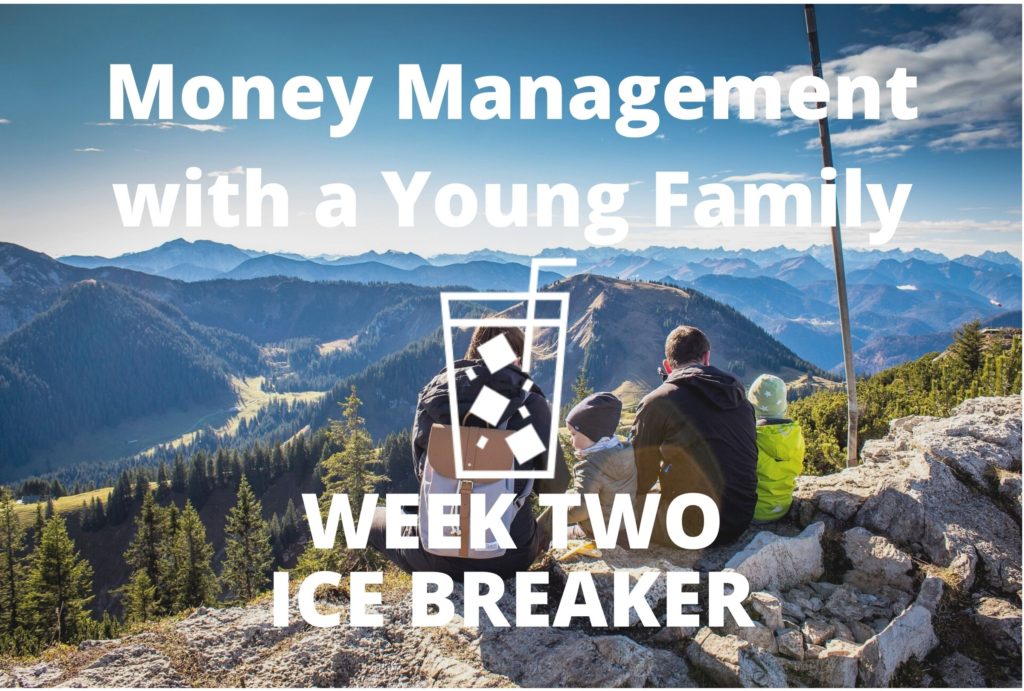If you only review one thing before your group Zoom meeting, REVIEW THE ICEBREAKER!! The icebreakers are designed to challenge how you think about money and will result in a lively discussion with the women in your group.
VIDEO – Next Level Life – How Your Childhood (Still) Affects Your Money (And Why You Should Care) – 14 minutes
Where do your feelings about money come from? For many of us our perspective is influenced by our home in childhood. This video defines four “money classrooms” that you may have experienced and how those classrooms may influence your life today.
KEY TAKEAWAYS:
This video summarizes the frameworks defined in Rachel Cruze’s book, “Know Yourself Know Your Money”.
Rachel Cruze has identified four “money classrooms” that we experience in childhood.
Money Classroom 1- The Anxious Classroom
In this classroom, kids learn that money is a scarce resource for their family and as well a source of tension and stress.
As adults, people raised in this classroom may find that:
- Talking about money in difficult and causes anxiety.
- They cannot escape the fear of not having enough money even when their financial circumstances have vastly improved.
On the bright side, these people tend to be frugal and can be efficient with their money.
Money Classroom 2- The Unstable Classroom
In this classroom, kids experience a rollercoaster ride where sometimes money is a scarce resource that causes stress, however other times money is a source of jubilation and spent freely. These kids cannot predict what response they will receive when they request a new toy or clothing. The responses can vary from a happy yes to an angry NO!
As adults, people raised in this classroom may find that:
- They expect conflict any time money is brought up
- They themselves “fly off the handle” easily whenever money is discussed
- They may always acquiesce to financial requests to avoid the “imminent” perceived conflict
- They develop an apathetic relationship toward their finances
Money Classroom 3- The Unaware Classroom
In this classroom, caregivers are calm but uncommunicative about money. These kids are blissfully unaware of money.
As adults, people raised in this classroom may find that:
- They have not learned any money management and have no models for how to manage, spend, save, and invest.
- They continue to avoid thinking about money, which can result in building up unmanageable amounts of debt.
- They find it difficult to initiate financial conversations with others.
- They find it difficult to be transparent about money with those they are close to.
On the bright side, these people do not have childhood emotional baggage regarding money, and therefore find it easier to learn and develop appropriate money management skills.
Money Classroom 4- The Secure Classroom
In this classroom, caregivers are emotionally calm and verbally open about money. These families may have experienced financial difficulties, however these were dealt with openly and calmly. Questions from kids were welcome and caregivers worked intentionally toward mutually agreed upon goals.
As adults, people raised in this classroom may find that:
- They underestimate the patience, communication, and sometimes sacrifice required to create the secure classroom environment.
DISCUSSION QUESTIONS:
Which “money classrooms” most accurately describe your childhood?
Which “money classrooms” are you in now? Are some of your family members in different “money classrooms”?
Which classroom would you like to be in 5 years? What steps would be necessary to change your “money classroom”?

